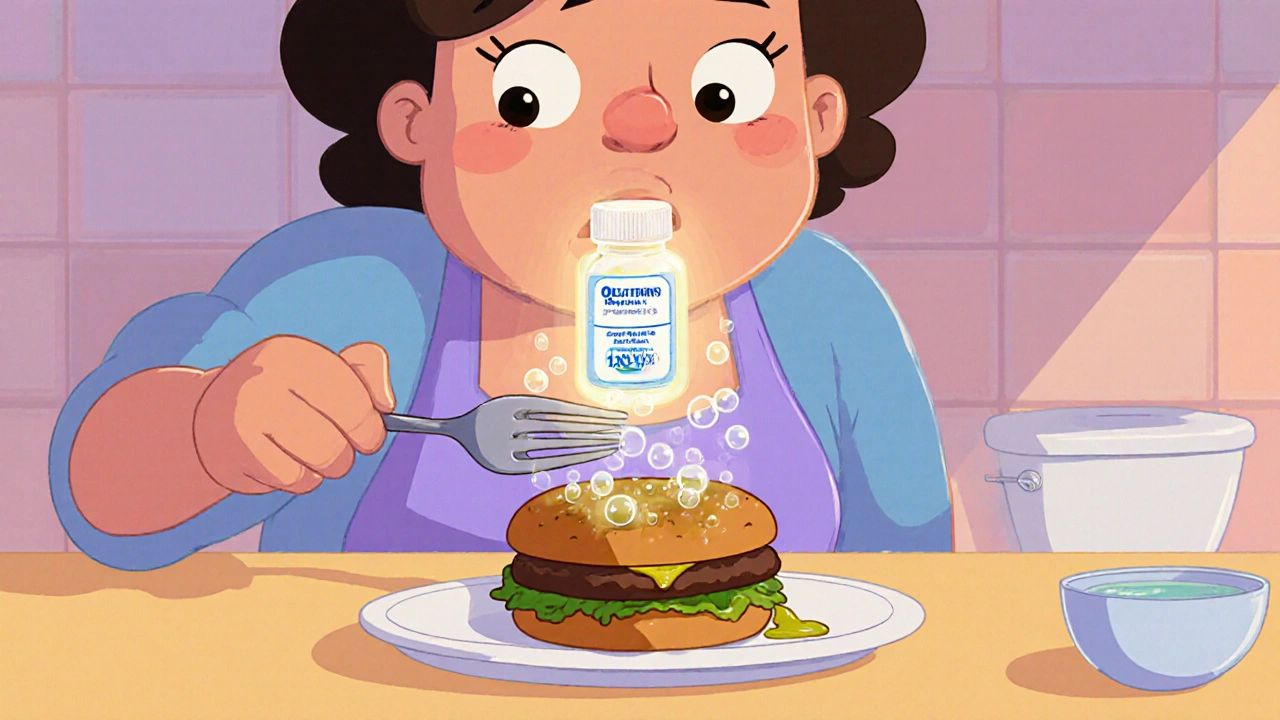Alli: What It Is, How It Works, and What You Need to Know
When you hear Alli, a weight loss medication that blocks dietary fat from being absorbed. Also known as orlistat, it's the only over-the-counter pill approved by the FDA for this purpose. Unlike most diet pills that promise quick fixes, Alli works in a simple, physical way: it stops about 25% of the fat you eat from entering your body. That fat passes through you unchanged. It doesn’t burn fat. It doesn’t suppress hunger. It just lets some of it go straight through.
This makes Alli different from everything else on the shelf. It doesn’t mess with your brain or heart. It doesn’t cause jitteriness or insomnia. But it does demand something from you: you have to change how you eat. If you take Alli and still eat fried chicken, burgers, and cream sauces, you’re going to have unpleasant side effects—oily spotting, frequent bowel movements, gas with discharge. That’s not a bug. That’s the system working. The body doesn’t want fat to pass through unabsorbed, so it reacts. The key is to eat less fat—around 15 grams per meal—and you’ll avoid the mess and start seeing results.
Alli isn’t magic. It’s a tool. And like any tool, it only helps if you use it right. People who pair Alli with a reduced-calorie, lower-fat diet and regular movement lose more weight than those who just take the pill alone. Studies show users lose about 50% more weight than with diet alone. That’s not huge, but it’s real. And it’s sustainable if you stick with the habits. You also need to take a multivitamin daily because Alli can reduce absorption of fat-soluble vitamins like A, D, E, and K. Take it at bedtime, at least 2 hours after your last meal, to avoid interference.
People often ask if Alli is safe for long-term use. Yes, if you’re healthy and follow the rules. It’s been used for over 20 years. But if you have gallbladder problems, chronic malabsorption, or are pregnant, you shouldn’t use it. And if you’re already on blood thinners, thyroid meds, or cyclosporine, talk to your doctor first. Alli doesn’t cause liver damage like some other weight loss drugs, but it’s not risk-free. The real risk? Thinking it’s a free pass to eat whatever you want.
What you’ll find in the articles below are real stories and practical guides about how Alli fits into daily life—how people manage side effects, what meals work best, how to spot fake products online, and how it compares to other weight loss options. You’ll also see how it stacks up against prescription orlistat, what supplements to take alongside it, and how to avoid scams selling "miracle" versions. This isn’t about quick fixes. It’s about understanding how your body handles fat, and making choices that actually work.

